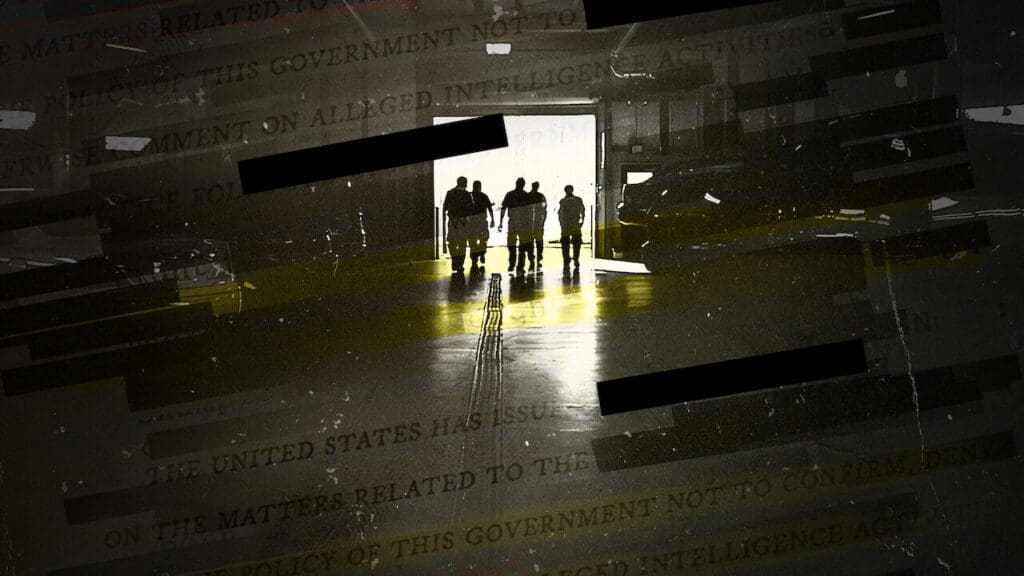Summary
Spy Ops explores the darker underbelly of geopolitics and foreign policy and the real-life events that unfold against the thrilling background of espionage.
This review of the Netflix series Spy Ops Season 1 does not contain spoilers.
There’s no denying that Spy Ops is a very exciting title for a documentary. It hints at a promise of a grandiose adventure, and yet it’s more eager to explore the darker underbelly of geopolitics and foreign policy.
That’s perhaps inevitable when it comes to Netflix’s latest documentary series. Like Spycraft from two years ago, Spy Ops is quite sobering in both intent and tone. It’s not too much of a surprise to find out that while the expectations of a life in espionage have been emblazoned in fiction thanks to the high-end adventures of James Bond, the reality is more akin to a John Le Carre novel or Kathryn Bigelow’s Zero Dark Thirty.
Spy Ops Season 1 review and plot summary
You might be reminded of the latter as the series begins with an exploration of post-9/11 geopolitical concerns. It’s a little disconcerting and distressing to see the attacks shown as graphically as they are here. It’s understandable that the series is painting the events of that day in terms of context, but even twenty-two years later, the footage still retains the power to shock and distress.
From there, Spy Ops plunges the viewer into a sea of political intrigue and American influence in international affairs.
Not only do we get to see the repercussions of the aftermath of 9/11, but also the determined efforts to remove General Noriega from power in Panama. That episode alone sees stock and news footage of both Ronald Regan and George Bush Sr recur as the narrative unfolds and makes for a surprisingly potent thematic double-bill with the preceding episode on 9/11 and Operation: Jawbreaker.
With each episode lasting around fifty minutes or so, there is almost not enough time to explore each episode’s subject in too much detail, despite the sheer amount of effort that has clearly been put into every installment.
That isn’t to say this isn’t good, because it is all rather entertaining. Subjects such as the attempted assassination of Pope John Paul II, Operation Pimlico, as well as Operation Wrath of God, itself explored in Steven Spileberg’s 2005 film Munich, make for enthralling factual viewing. The latter ends up being given two episodes for its retelling of that account and makes for a sobering experience, as well as feeling more complete with its two-part format.
Is Spy Ops good or bad?
There’s a frequent attempt by the makers of Spy Ops to relay facts in a manner that tries desperately to be both respectful and mindful of the impact that was made in historical and political terms.
The first episode ends with a sobering montage of Afghanistan in the twenty years since 9/11 and while it doesn’t quite point fingers, it’s unafraid to leave hovering in the air the idea that not much ended up improving after US military intervention.
Is Spy Ops worth watching?
Spy Ops straddles a line in terms of its observations of what it presents while trying not to fall into the realm of propaganda.
The subjects it presents are confined to dicey territory given the scale of events and politics surrounding them. Maybe it doesn’t quite become a powerhouse in terms of its presentation, but it is for the most part a very entertaining lesson about the recent past in a way that should prove enthralling for anyone wanting an enjoyable binge and a history lesson at the same time.
What did you think of Spy Ops Season 1? Comment below.
You can watch this series with a subscription to Netflix.



